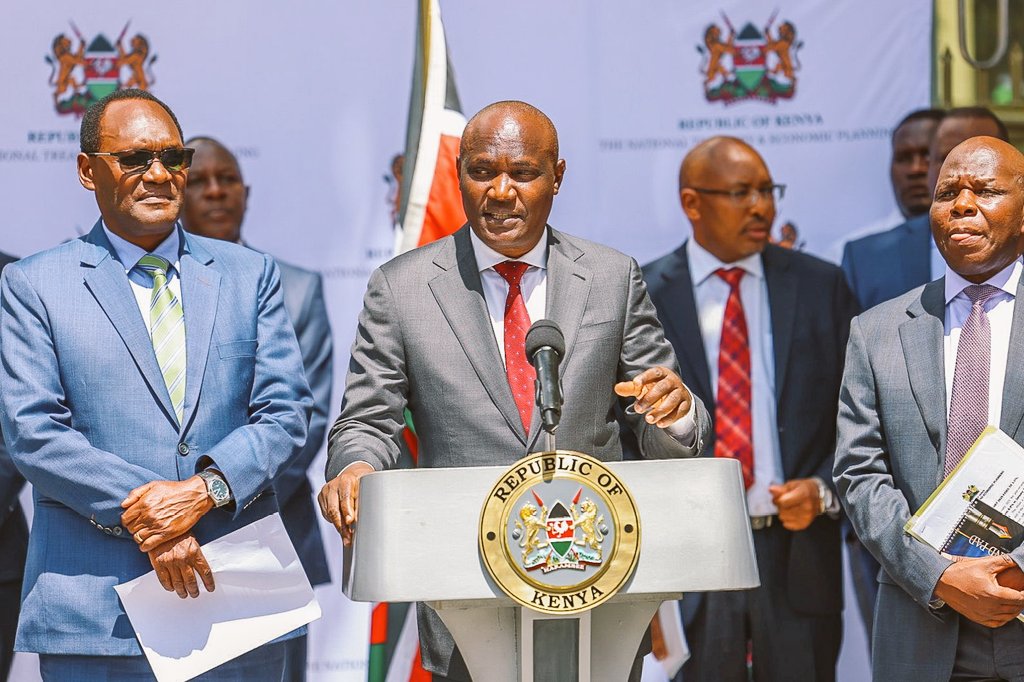MPs probe National Treasury over alleged use of infrastructure bond funds for salaries

Infrastructure Bonds, which were introduced in February 2009, are exempt from withholding tax—unlike other bonds that attract a tax of 10 per cent for maturities of five years and above and 15 per cent for shorter periods.
Members of Parliament have demanded full disclosure on how proceeds from Infrastructure Bonds (IFBs) are being utilised, amid concerns that the funds meant for development projects are being diverted to recurrent expenditures such as salaries.
The National Assembly’s Liaison Committee now wants the National Treasury to establish a monitoring mechanism that includes representatives from the Central Bank of Kenya (CBK) and the Controller of Budget to oversee the procurement and utilisation of public debt.
More To Read
- Kenya to launch National Infrastructure Fund to cut reliance on external borrowing
- CS Chirchir defends Sh175 billion infrastructure bond, assures it won’t raise public debt
- Government evacuates 5,232 distressed Kenyans from 19 countries amid exploitation concerns
- African finance ministers shouldn’t be making bond deals: how to hand over the job to experts
- National Treasury raises Sh71.4 billion from bond sale, exceeding target
- CBK raises Sh48.5 billion in oversubscribed bond sale as interest rates fall
The committee argues that greater transparency is needed to ensure the funds raised through IFBs are strictly used for infrastructure projects as intended.
“There is a need for greater transparency and accountability in the utilisation of domestic borrowing, especially when funds are allocated for general budgetary support—an approach that has been common with the proceeds of infrastructure bonds,” the committee said in the report tabled on March 5.
To enhance oversight, the committee proposed the formation of a task force comprising representatives from the National Treasury, Central Bank of Kenya (CBK), and the Controller of Budget to monitor the procurement and utilisation of public debt.
“To improve transparency and accountability in the anticipated increase in domestic borrowing, the Cabinet Secretary National Treasury and Economic Planning should, within 60 days...record in the debt register the details on the utilisation of the borrowed funds, including the set of projects funded from the proceeds of infrastructure bonds,” reads the report.
Infrastructure Bonds, which were introduced in February 2009, are exempt from withholding tax—unlike other bonds that attract a tax of 10 per cent for maturities of five years and above and 15 per cent for shorter periods. The tax exemption is designed to attract investors with the expectation that the government will recover the forgone revenue through taxes generated by the projects funded by the bonds.
Development projects
Initially, IFBs were linked to specific development projects to allow for tracking and accountability. For instance, the first IFB, issued in 2009, targeted Sh18.5 billion with a 12-year maturity, allocating Sh4.15 billion to water, sewerage and irrigation projects, Sh6.44 billion to roads and Sh7.91 billion to energy projects. Another IFB issued in December 2009 also detailed allocations for district-level water, road and energy projects.
However, in recent years, IFB prospectuses have become less detailed, merely stating that the proceeds will be used for "funding of infrastructure projects."
The lack of specificity has raised concerns among legislators, especially given the significant sums raised through IFBs in recent years.
The government has collected Sh889.6 billion from the last six IFB issuances since March 2023, underlining their growing role in bridging the budget deficit. The two largest single issuances in Kenya’s history include an 8.5-year IFB sold in February 2024 that raised Sh241 billion at an 18.46 per cent rate and a seven-year IFB sold in June 2023 that raised Sh213.4 billion at 15.83 per cent.
The bonds have consistently outperformed ordinary bonds of similar tenors in interest rates, making them highly attractive to investors.
However, legislators argue that unless their use is strictly monitored, the intended economic impact may not be realised, necessitating greater accountability from the Treasury.
Top Stories Today











































